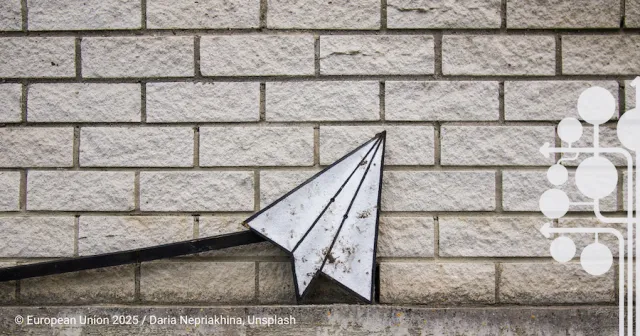Borut Marn: Education should respect the structure of the entire process

Short bio
I am a specialist in otorhinolaryngology, cervicofacial surgery and audiology. All my life I have worked in my profession on improving the early recognition of hearing impairment in children in the Republic of Croatia. Even today, I’m still very active in my field of work as a retiree, and since 2019 I have been been sharing my knowledge and skills with learners in adult education.
My story
In addition to professional and scientific work, for decades I have participated in the education of students and experts in the fields of otorhinolaryngology, school medicine, paediatrics, phonetics, and hearing-speech rehabilitation.
The most interesting training was the one for the parents of hearing-impaired children, as well as experts participating in the rehabilitation of these children from different parts of the world, who had little or no professional knowledge in the field of audiology. There were nuns as well. What they had in common was the motivation to help children, especially if they were their own.
I won the City of Zagreb Plaque in 2004, the Lifetime Achievement Award of the Croatian Association for Early Intervention in Childhood in 2022, and the City of Zagreb Award in 2023 due to the introduction of screening for hearing impairment in all maternity hospitals in the Republic of Croatia for newly born babies.
What my professors Mihovil Pansini, PhD, MD, academic Petar Guberina, PhD and Mladen Lovrić, taught me is that education should always respect the structure of the entire process and that, consequently, experts of different profiles must participate in it.
What I have learned myself is that the method of teaching/education must be adapted to the listener's prior knowledge to the greatest extent. This means that we need to understand each other! Each profession has its own meta language which is often incomprehensible to the average listener.
My experience is that an interested and especially motivated listener learns the most.
In 2019, I started teaching in adult education at the Ambitio College in the field of auditory acoustics. This was a new challenge for me because, until then, there were no education of such a specialism in Croatia. I recognised the quality of the program and accepted the challenge. The experience with the learners has shown so far that most of them have a significant motivation to learn new knowledge in a field that was unknown to them. Their big motivation to expand their businesses was the guiding star towards the successfully completed training program. They showed the most interest in the practical skills of testing hearing because these skills enable practical application in the workplace.
As we are living in a world that is constantly changing on a regular basis, especially in terms of technology, the ways of learning and teaching are also changing, which increasingly promotes the use of digital tools and artificial intelligence. This requires the flexibility and adaptability of teachers and the constant monitoring of new technologies.
Although digitalisation is useful in some situations in our work and personal life, I still believe that working together with learners in the classroom cannot be completely replaced by digital tools or artificial intelligence. This is because humans are social beings who build relationships with other people throughout their lives.
Adult education should continue to nurture theoretical learning and teaching in the classroom, as well as the acquisition of practical skills through exercises and practicing at work.
Digital tools are only needed as support in some situations, and not serving as a tool for the only way of communication, like we experienced during the pandemic. As an expert in adult education, I would like us to develop quality national and international educational cooperation, as well as quality adult education programs that guarantee employment and competitiveness on the labour market in the 21st century, supporting intergenerational learning and experience-based learning. At the same time, I would like us to develop good interpersonal relationships, which are the key to success for creating innovations.
3 relevant skills for the future?






reflections
"Digital tools are only needed as support in some situations, and not serving as a tool for the only way of communication, like we experienced during the pandemic!"-
Technologies change. A knowledgeable teacher remains in the classroom, who knows how to adapt to the requirements of the times, helps students learn cooperation, learning and work skills.